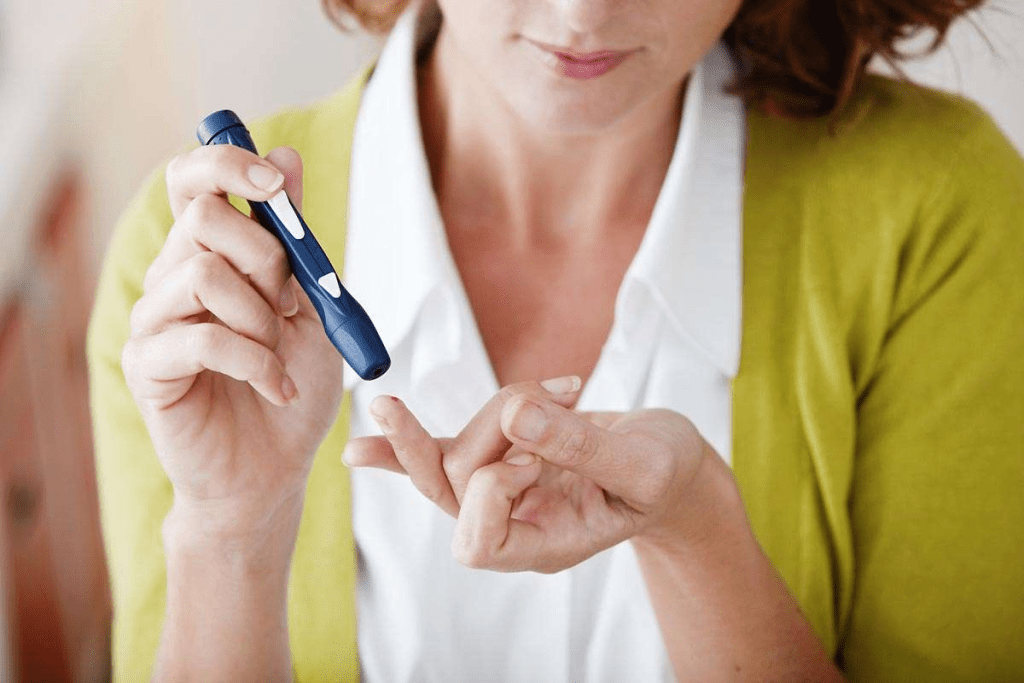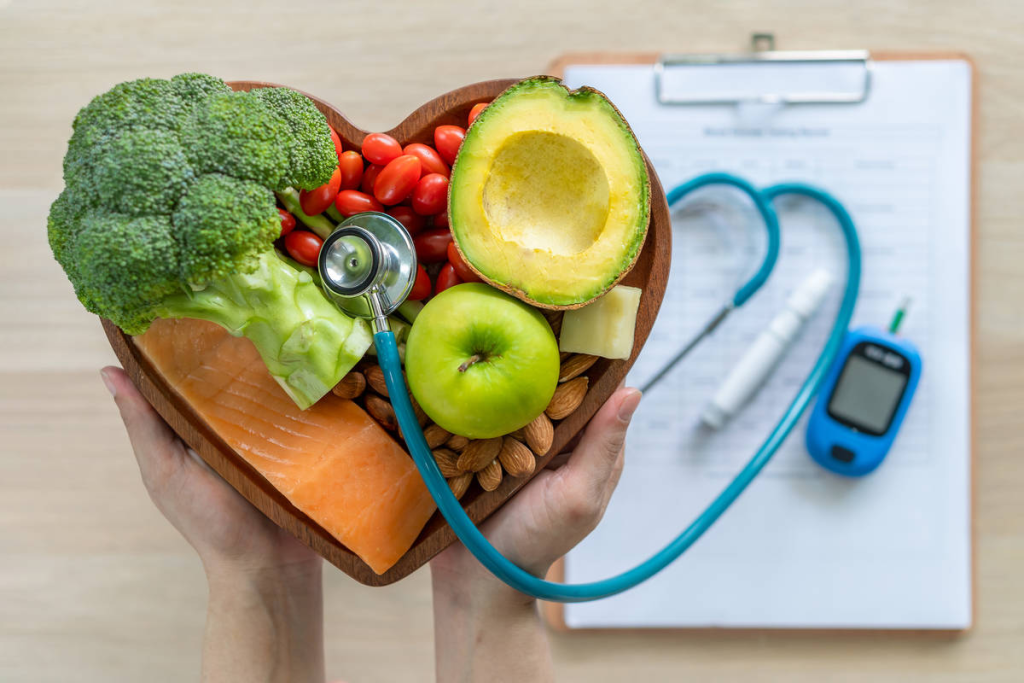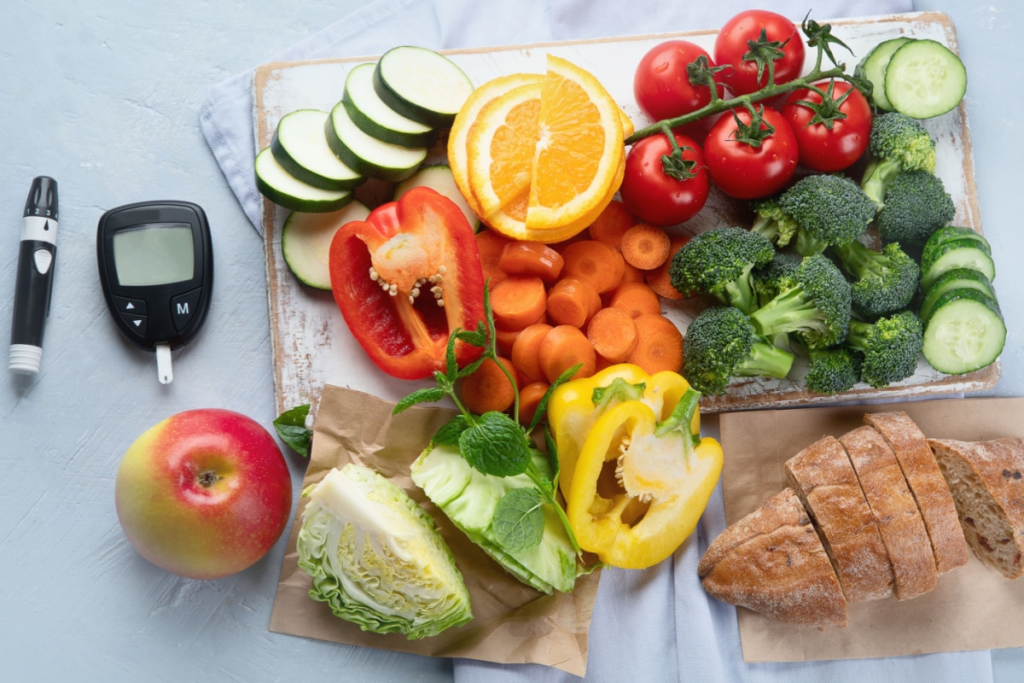Last Updated on November 14, 2025 by
Managing diabetes means being careful with what you eat. Some foods can make blood sugar levels go up too high. At LivHospital, we stress the need for a well-thought-out diet to manage diabetes.

Diabetics should stay away from foods that raise blood sugar and increase health risks. A diabetic diet food list includes most foods. But it’s key to limit or avoid foods that lead to high blood sugar.Diet type 2 guidelines stress avoiding certain foods. Learn which foods diabetics must avoid to manage blood sugar effectively.
The food we eat is key in managing blood sugar, more so for those with diabetes. Making smart food choices is vital for managing diabetes well.

Carbohydrates greatly affect blood sugar levels. Refined carbs, sugary foods, and drinks can quickly raise blood glucose. But, foods high in fibre like veggies and whole grains help keep blood sugar stable.
Knowing the glycemic index (GI) of foods is also useful. The GI shows how fast foods raise blood sugar. High GI foods like white bread and sugary snacks raise blood glucose fast. Low GI foods, like most fruits and veggies, do it more slowly.
What we eat is key to managing diabetes. By picking the right foods, people with diabetes can control their blood sugar, stay healthy, and avoid diabetes complications.
“The most important thing for a person with diabetes is to understand the impact of food on their blood glucose levels and to make informed choices.”-Doctors highlight
This highlights the need for education and awareness in diabetes care.
By eating whole, unprocessed foods like veggies, fruits, whole grains, lean proteins, and healthy fats, people with diabetes can manage their condition better. This improves their overall health, too.
When we talk about managing Type 2 diabetes, ultra-processed foods are a big deal. They’re bad for everyone’s health, but even worse for people with diabetes.
Ultra-processed foods are made in big factories. They have lots of ingredients, added sugars, and unhealthy fats. They’re made to taste good and be easy to eat.
Examples include packaged snacks, frozen meals, and sugary drinks. These foods have a lot of empty calories and not much good stuff like fibre or vitamins.
Up to 70% of what we eat in the U.S. is ultra-processed. This is a big problem because these foods can lead to health issues like obesity and heart disease.
The dominance of ultra-processed foods in the American diet is a public health concern. We need to focus on eating whole, nutritious foods instead.

Research shows that eating a lot of ultra-processed foods can raise your risk of heart disease by 17%. For people with Type 2 diabetes, this is a big worry because they’re already at higher risk for heart problems.
The link between ultra-processed foods and cardiovascular risk is a critical consideration for diabetics. It shows how important what we eat is for our heart health, not just blood sugar.
For people with Type 2 diabetes, cutting down on ultra-processed foods is key. Some foods to avoid include:
Eating more whole, nutritious foods can help manage Type 2 diabetes better. It can also lower the risk of serious health problems.
For diabetics, knowing how high glycemic carbs affect blood sugar is key. These carbs can quickly raise blood sugar levels. It’s important to control their intake to keep blood sugar in check.
White bread and refined flour items are high glycemic carbs. They are quickly digested, causing blood glucose to spike. We advise against eating foods made with refined flour, like white bread and pastries.
Choose whole-grain options instead. They have a lower glycemic index and help keep blood sugar stable.
Research shows that diets rich in refined carbs worsen insulin resistance. This is a big problem for type 2 diabetes. For more on carbs and blood sugar, check out Harvard’s Nutrition Source.
White rice and pasta also cause blood sugar spikes. They are quickly turned into glucose, raising blood sugar fast. Regularly eating these can lead to insulin resistance, making diabetes harder to manage.
Switch to whole-grain rice and pasta. They are higher in fibre and have a lower glycemic index. This can help control blood sugar and improve your diet.
Potatoes and other starchy veggies can also raise blood sugar. While they’re healthy, diabetics should eat them in moderation. Baking or boiling potatoes is better than frying to cut calories and fat.
Balance your meals with non-starchy veggies. They’re full of fibre and antioxidants, helping manage blood sugar.
Eating sugary foods and drinks can really hurt diabetes management. High sugar intake causes blood glucose to spike, leading to poor diabetes control. This can also raise the risk of serious health problems.
Sodas and sweetened drinks are big sugar sources in our diets. They quickly raise blood sugar because of their high glycemic index. Drinking them often can make our bodies less responsive to insulin, making it tough to keep blood sugar in check.
Here are some drinks to cut down on or avoid:
Desserts, candies, and sweets are high in added sugars and can harm diabetes control. They’re not just sugary; they often have unhealthy fats too. This can lead to weight gain and other health problems.
To manage diabetes well, it’s key to limit or avoid:
Choosing healthier options or tweaking recipes to cut sugar can be a smart move.
Many foods thought to be healthy actually have hidden added sugars. It’s important to check food labels for added sugars, which can be named differently, like high-fructose corn syrup, honey, and maple syrup.
Here are some “healthy” foods with hidden sugars:
Knowing about these hidden sugars helps us make better choices to control our sugar intake.
Managing type2 diabetes means watching out for hidden factors that can mess with blood sugar. Artificial sweeteners and food additives might seem safe or even good for us. But they can actually harm our bodies in ways we don’t expect.
Research shows these substances can change our gut bacteria, affect how our body uses insulin, and even control our hunger. Knowing how artificial sweeteners and food additives work is key to managing diabetes well.
Studies reveal artificial sweeteners can mess with our body’s blood sugar control. Using them can trick our body into expecting sugar, which can make insulin resistance worse.
Some important findings on artificial sweeteners are:
Be careful with artificial sweeteners like aspartame, sucralose, and saccharin. They might not have calories, but they can harm our metabolic health.
Some food additives, like emulsifiers and preservatives, can hurt our insulin sensitivity. These are in many processed foods, making it hard to avoid them all.
Examples of additives that might harm insulin sensitivity include:
To reduce risks, check food labels closely and choose whole, unprocessed foods. Being aware of these hidden factors helps us manage type 2 diabetes better.
Unhealthy fats and processed meats can raise the risk of diabetes complications. It’s important to choose what we eat carefully. High amounts of trans fats, saturated fats, and processed meats can harm our hearts and worsen diabetes symptoms.
Trans fats and saturated fats are bad for people with diabetes. Trans fats can lead to heart disease by changing cholesterol levels. Saturated fats, found in red meat and full-fat dairy, also raise bad cholesterol, increasing heart disease risk.
To avoid these unhealthy fats, we recommend:
Processed meats like sausages, bacon, and deli meats can also raise diabetes risks. These foods are often high in sodium and nitrates, which are bad for our hearts.
To reduce risks from processed meats, we suggest:
By being careful about the fats and meats we eat, we can manage diabetes better. This helps reduce the risk of serious complications.
Managing diabetes means sticking to a healthy diet for the long haul. Avoiding foods like ultra-processed items and sugary drinks is key. This helps keep blood sugar levels in check.
A good diabetic diet should include lots of whole, nutritious foods. These foods help lower blood sugar. Tailoring this diet to fit your needs ensures you manage diabetes well.
Following the tips in this article helps create a diet that’s good for your health. It’s important to work with your doctor to make a plan. This plan should include a balanced diet, exercise, and checking blood sugar regularly.
Eating whole, unprocessed foods is key. This includes veggies, fruits, whole grains, lean proteins, and healthy fats. These foods help keep blood sugar stable and support health.
Avoid high glycemic carbs like white bread and sugary foods. Also, limit unhealthy fats. These can raise blood sugar levels.
Research on artificial sweeteners is ongoing. Some studies show they might affect blood sugar and diabetes risk. We suggest using them in moderation.
Ultra-processed foods can increase heart disease risk and worsen blood sugar control. It’s best to eat less of them.
Choose water, unsweetened tea, or coffee instead of sugary drinks. Infused water with fruits or herbs is also a good option.
Starchy veggies like potatoes are okay in small amounts. They have a high glycemic index. Balance them with non-starchy veggies.
Read food labels for terms like “high fructose corn syrup” and “sucrose.” Even “healthy” foods can have added sugars.
Choose healthy fats like avocado and olive oil. Avoid trans and saturated fats in processed and fried foods.
No food can instantly lower blood sugar. But eating foods with a low glycemic index can help manage blood sugar over time.
Focus on whole foods, watch carb intake, and limit sugary and unhealthy foods. This supports health goals.
Subscribe to our e-newsletter to stay informed about the latest innovations in the world of health and exclusive offers!